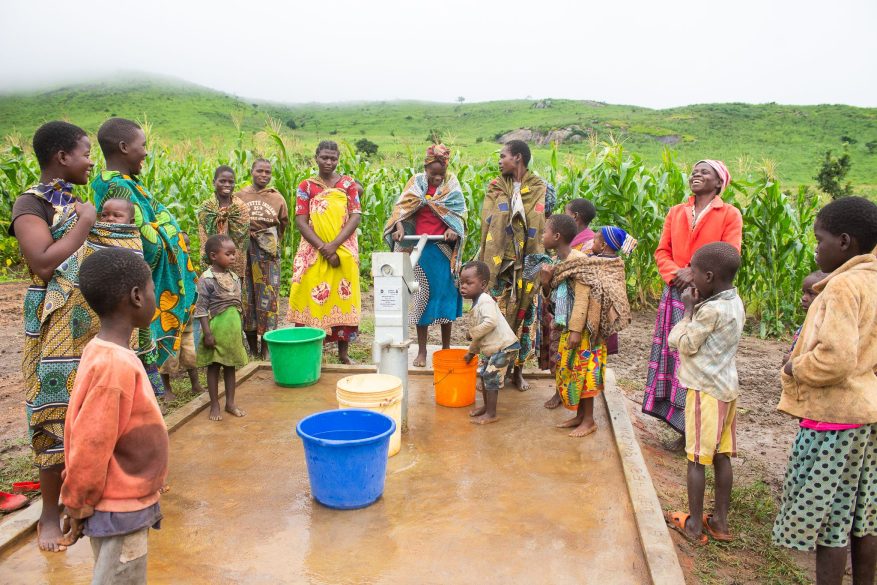Across the world today, over 2 billion people don’t have access to clean safe drinking water, with 400 million people in Africa alone experiencing this challenge. In rural Africa, up to 75% of the population lack access to safe drinking water; and 3 out of four lack access to safe sanitation (ref: Relief Web).
But behind these numbers are real people, a young mother trying to make sure her family stays healthy; a farmer needing to irrigate their crops; a young girl who wants to stay in school when she’s menstruating – they all rely on access to clean water.
Providing universal access to clean and sustainable water is a key priority for Self Help Africa – because it is so central to sustainable development and tackling systemic poverty.
Over the past two weeks, I’ve been travelling through the Dowa region in central Malawi to visit a range of Water Sanitation and Hygiene (WASH) initiatives that have been established by Self Help Africa. On this journey through rural Malawi, along uneven dirt tracks, I’ve had the privilege of listening to exciting and fulfilling stories from members of 60 different communities where Self Help Africa has provided water through the drilling of boreholes and establishing piped water systems. These communities never dreamt of having clean water within reach.
One such community is Kamphimba village – a small rural settlement home to 160 families. Previously the only water available was a shallow well shared with several neighbouring villages, and used by people and animals alike. In 2022 and 2023, a cholera outbreak devastated this community, where lack of clean water sources contributed to spread of the disease.
Now, a new solar powered pump and well is providing these homes with access to clean water for the first time.
The impact of these interventions is immeasurable. Witnessing women and children pumping clean water with smiles on their faces is a testament to the profound difference these projects make. Women no longer have to trek long distances at 4am in the morning in search of water, risking their safety, and encountering conflict at distant shallow wells. For many, the provision of a borehole signifies newfound freedom and relief from daily struggles.
Self Help Africa also provided training to a newly established local water committee on water point management to make sure the water source is maintained and sustained. Alongside, information on hygiene practices, on sanitation and proper use of latrines has been shared with the community to help improve health and reduce disease.
Across the Dowa region, Self Help Africa is working hand in hand with local partners and communities to establish clean water access in 170 different communities.
The journey to provide clean water may be challenging, but the hope and happiness, and the transformed lives along the way make it all worthwhile. Together, we can continue to make ripples of change, one drop at a time.

